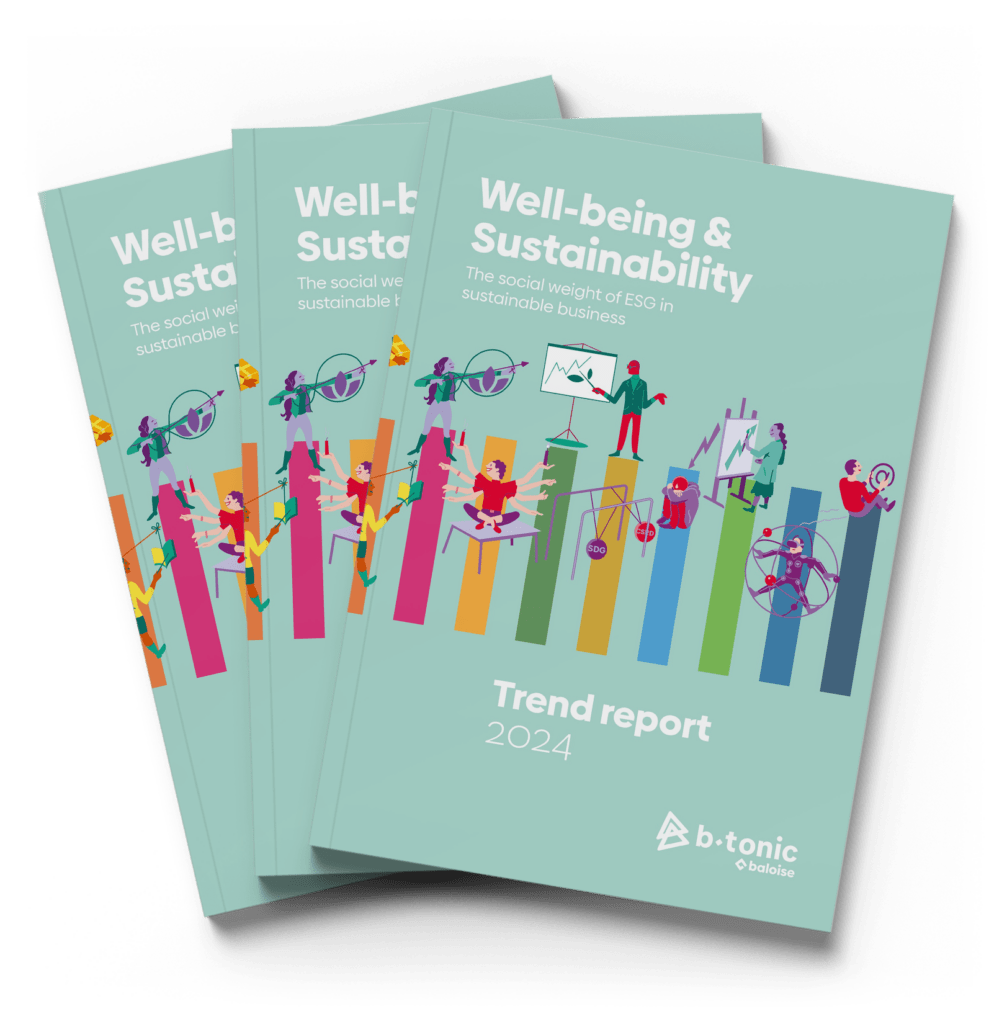Blog by Prof. Dr Kathleen Vangronsvelt (AMS)
This weekend I told some friends of mine that I was working on a tremendously interesting study on absenteeism. More specifically, on the manager’s influence on absenteeism. My friends did not reciprocate my enthusiasm. “Oh that is with the Bradford factor and so on? Boring!” and “Pff, that is always so vague to me: is an absence interview going to help when someone is recovering from cancer?”
Boring? Vague? About time to shine some light on the tangled web that is absenteeism. And high time to unravel some underlying mechanisms.
What does science say about it?
Absenteeism is defined as “failure to show up for scheduled work” (Johns, 1997). Whether involuntary or voluntary, legitimate or not, white or black or grey; many researchers make an abstraction of this. Not only is the line often thin, but you will also rarely know for sure as a manager or HR professional. That is why it is important to always maintain a dual focus: a focus on health promotion and disease prevention ( ~involuntary absence) and a focus on employee motivation and mindset (~voluntary absence) (Lokke, 2022).
To better understand the possible influence of a manager on (all types of) absenteeism, it is important to know that four mechanisms can play a role. Attendance or absence is affected by
1 – the demands (and resources) in the job
Absence is the result of the employee’s perception that they cannot handle what is being asked of them. e.g. “There is so much work, I can’t stop thinking about it and I do not sleep anymore!” (Job Demands Resources perspective).
2 – job satisfaction and commitment to the organisation
Absence is the result of low feelings of satisfaction and commitment among employees. So low that he/she needs to move away from the negative situation to stay mentally healthy. e.g. “Now we are again getting negative press. I am ashamed of my work!” (Withdrawal perspective)
3 – the expected response to presence/absence
Absence is the result of a trade-off where not working yields more positive results than working. e.g. “I am going to help my friend move quickly; I only have boring meetings lined up today anyway”. (Expectancy perspective)
4 – social relationships at work
Absence is the result of observed behaviour of others (e.g. “everyone here exactly takes down days; then so do I!”), or of the relationship with them (e.g. “no one here notices whether I’m here or not anyway”) (Social dynamics perspective)

So what does that mean in practice?
First, it means that an absenteeism policy in an organisation should always stand on two legs: health promotion and disease prevention on the one hand and motivating employees on the other.
Further, that it is worth taking a closer look at the team’s work context: is it possible to reduce task demands? To reduce the workload? Slow down work? Clarify who is responsible for what?
Also that it is worth training managers in prevention of, and dealing with, absenteeism. E.g. by raising awareness of their own health behaviour (role model), or by teaching them the desired absenteeism mindset (e.g. health-focused mindset: sick & not working is okay, sick & working is not okay). Or by training them in providing social support, or in developing the right coping style in employees.
Conclusion:
Boring? Anything but! Vague when it comes to my translation into practice? A little bit. The literature around effectiveness of absenteeism interventions is still in its infancy (Lokke, 2022). Fortunately, this is gradually changing. Not in the least thanks to organisations that understand the importance of implementing absenteeism interventions on scientific knowledge. So do Mensura, Bpost and B-Tonic (subsidiary of Baloise Insurance): together with them, Eva Geluk and I are exploring “What makes an absenteeism intervention work?”
You can keep up to date with our research by regularly checking our research page.
References
- Johns, G. (1997). Contemporary research on absence from work: Correlates, causes and consequences. International Review of Industrial and Organizational Psychology, 12, 115–173.
- Løkke, A.-K. (2022), “Leadership and its influence on employee absenteeism: a qualitative review”, Management Decision, Vol. ahead-of-print No. ahead-of-print. https://doi.org/10.1108/MD-05-2021-0693





